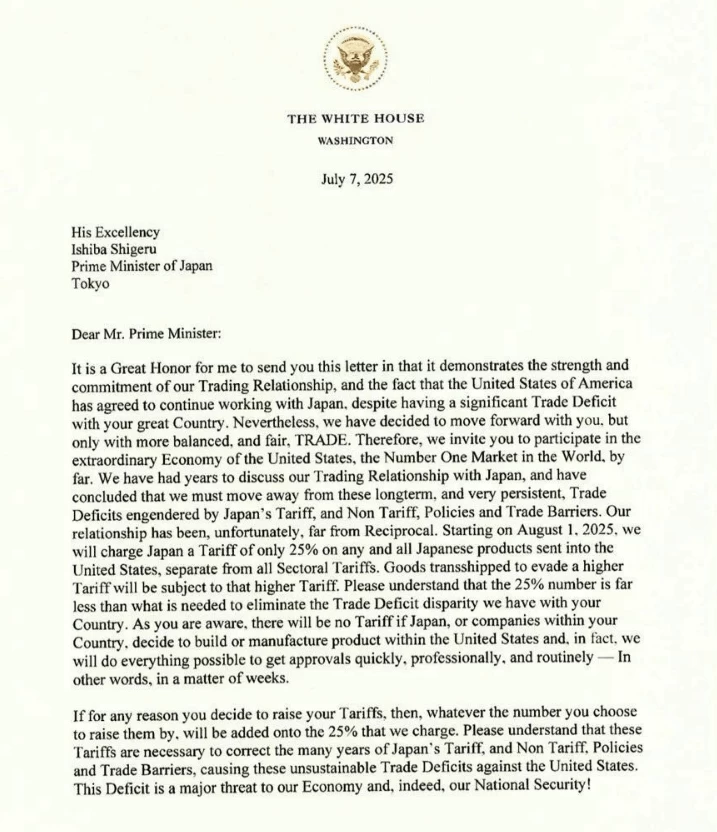Logistics Industry Braces for Global Supply Chain Shifts
WASHINGTON, D.C. – Former President Donald Trump announced sweeping tariff hikes targeting 14 countries across Asia, Africa, and Eastern Europe, effective August 1, 2025. The move signals intensified trade policy pressures that will reshape global logistics networks.

East Asia:
Japan & South Korea: 25% on all US-bound products.
Exemption: Companies manufacturing within the U.S.
Warning: Transshipment circumvention will face higher rates; retaliatory tariffs trigger matching U.S. countermeasures.
Southeast Asia & Africa:
South Africa: 30%
Malaysia & Kazakhstan: 25%
Laos & Myanmar: 40%
Indonesia: 32%
Cambodia & Thailand: 36%
Eastern Europe & Others:
Bosnia: 30%
Serbia & Bangladesh: 35%
Tunisia: 25%
These tariffs apply independently of sector-specific duties and may be "adjusted based on bilateral relationships."
Concurrently, Trump extended the suspension window for "reciprocal tariffs" until August 1. This follows stalled negotiations with the EU, Japan, India, and others—only the UK and Vietnam have reached provisional deals.
① Supply Chain Diversification Accelerates
Manufacturers in affected nations will fast-track nearshoring (Mexico) or U.S. production to avoid duties. *Anticipate surges in machinery/equipment logistics from Q3 2025.*
② Transshipment Crackdowns Demand Compliance
Heightened CBP scrutiny on routing via non-targeted countries (e.g., Vietnam, India) requires rigorous documentation. SunnyWorldwide advises clients to audit shipping routes by July 15.
③ Cost Projections & Mitigation
Asia-U.S. ocean freight rates may spike 15-20% as tariffs cascade.
Recommendation: Utilize bonded warehouses and foreign-trade zones (FTZs) to defer duties.
④ Retaliation Risks
If Japan/South Korea impose counter-tariffs, U.S. exports (e.g., agriculture, pharmaceuticals) face disruptions. Contingency air freight options recommended for time-sensitive cargo.
July 15: Finalize route restructuring plans
July 20-31: Preemptive cargo surge expected
August 1: Tariffs take effect; grace period expires
"These policies will force immediate rerouting of Asia-U.S. supply chains," notes SunnyWorldwide’s Chief Analyst. "Agility in customs compliance and trade corridor diversification are non-negotiable."